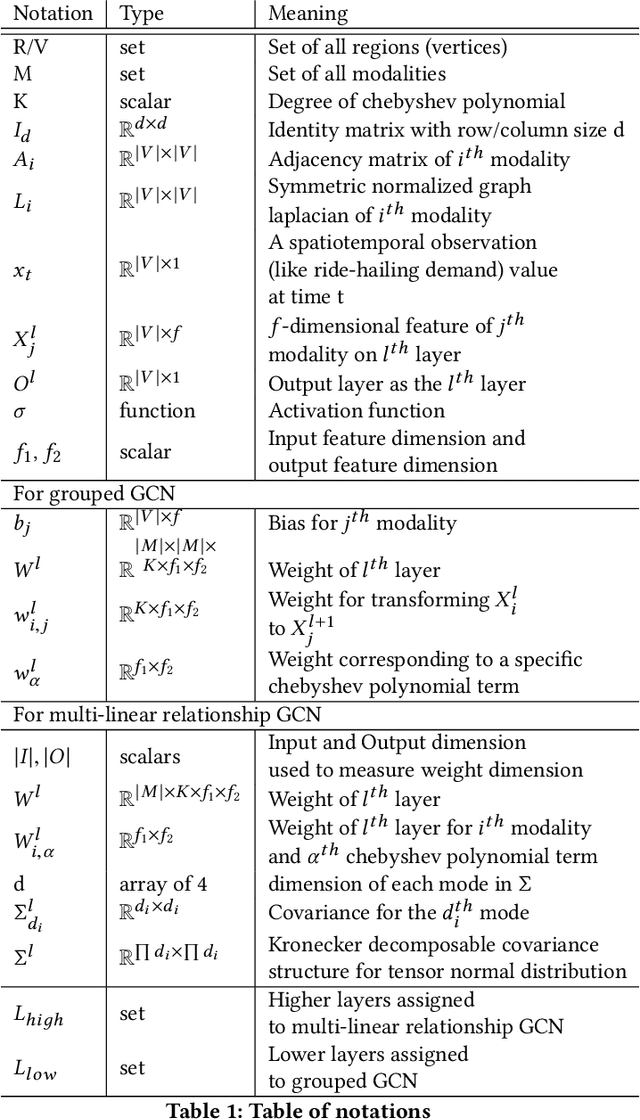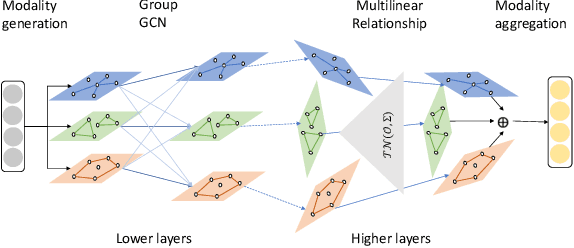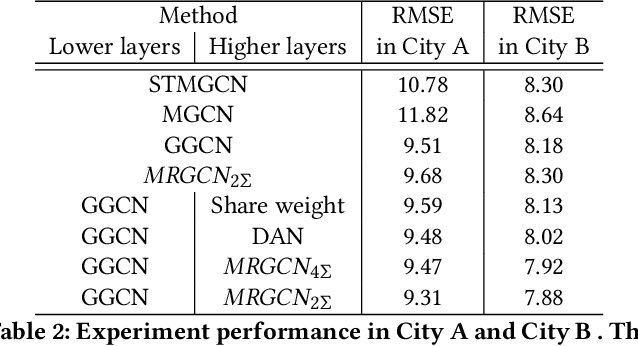Multi-Modal Graph Interaction for Multi-Graph Convolution Network in Urban Spatiotemporal Forecasting
Paper and Code
May 27, 2019



Graph convolution network based approaches have been recently used to model region-wise relationships in region-level prediction problems in urban computing. Each relationship represents a kind of spatial dependency, like region-wise distance or functional similarity. To incorporate multiple relationships into spatial feature extraction, we define the problem as a multi-modal machine learning problem on multi-graph convolution networks. Leveraging the advantage of multi-modal machine learning, we propose to develop modality interaction mechanisms for this problem, in order to reduce generalization error by reinforcing the learning of multimodal coordinated representations. In this work, we propose two interaction techniques for handling features in lower layers and higher layers respectively. In lower layers, we propose grouped GCN to combine the graph connectivity from different modalities for more complete spatial feature extraction. In higher layers, we adapt multi-linear relationship networks to GCN by exploring the dimension transformation and freezing part of the covariance structure. The adapted approach, called multi-linear relationship GCN, learns more generalized features to overcome the train-test divergence induced by time shifting. We evaluated our model on ridehailing demand forecasting problem using two real-world datasets. The proposed technique outperforms state-of-the art baselines in terms of prediction accuracy, training efficiency, interpretability and model robustness.
 Add to Chrome
Add to Chrome Add to Firefox
Add to Firefox Add to Edge
Add to Edge